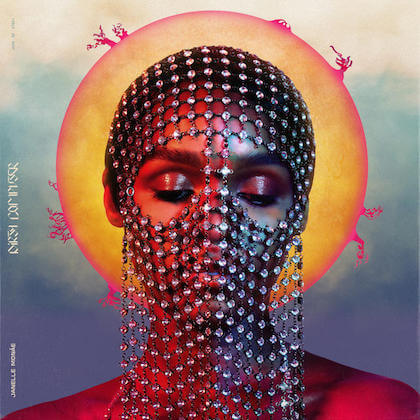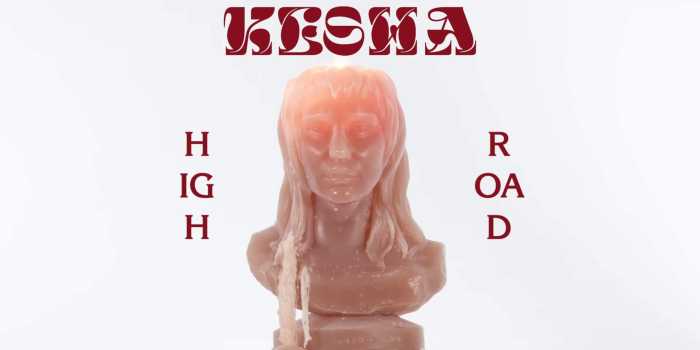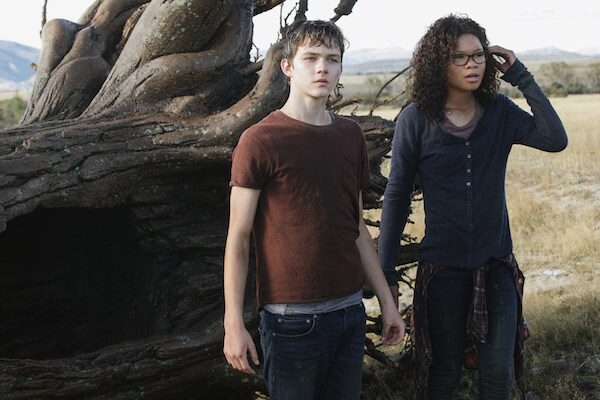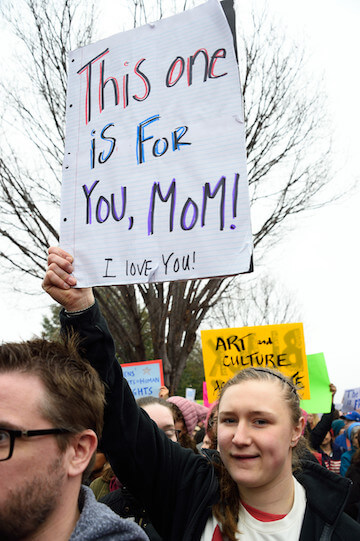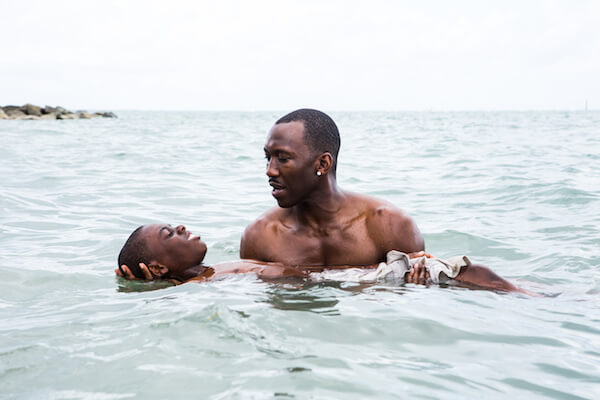Janelle Monáe’s “Dirty Computer.” | JMONAE.COM
Janelle Monáe’s first two major-label albums, 2010’s “The ArchAndroid” and 2013’s “The Electric Lady,” were part of a larger Afro-futurist conceptual project, along with their associated videos, in which she played an android named Cindi Mayweather. Without becoming a huge star, she has attracted an audience of outcasts much like David Bowie and Prince did in their day. Like them, she has played with ambiguous gender and sexuality, and this continued in the four singles and their videos she released in the run-up to her latest album, “Dirty Computer.”
But in interviews, she had answered questions about her sexuality by using that framework to deflect, saying things like, “I only date androids” or, at most, “I’m very sexually free.” The lyrics and, even more, videos for recent singles like “Make Me Feel” and “Pynk” made it quite clear that she’s not heterosexual. To no one’s surprise, she came out as pansexual in an interview with Rolling Stone published April 26, the day before the release of “Dirty Computer.”
Where Beyoncé repeated “Bow down, bitches!” on her song “Flawless” — even if she wants those “bitches” to take up feminism and support Black Lives Matter — Monáe addresses her audience as equals in an alienating society. The title track begins the album with a nod to her vulnerabilities, with Monáe describing herself as a “dirty computer, searching for someone to fix my drive.” The sci-fi references on “Dirty Computer” haven’t been thrown away, but this album addresses life in America 2018 in a very blunt manner. While the spoken word segments protesting racism and homophobia on the final song, “Americans,” get very heavy-handed, Monáe expresses her politics with a sense of humor and pleasure the rest of the time. Some of her lyrics recall Prince’s “1999” in their determination to party in the face of oppression, but Monáe has less fatalism and more interest in overt resistance.
“Dirty Computer” moves artist beyond her android conceit
Prince worked on this album just before his death, Beach Boys songwriter Brian Wilson sings on the title track, and Stevie Wonder gets an unfortunately preachy 46-second spoken word interlude. The inspirations of Erykah Badu and the now-defunct hip-hop duo Outkast also hang heavily over her music, and she collaborated with both in the past. In turn, she may have paved the way for forward-thinking female singers like Solange, Jhené Aiko, and Kelela. She also runs the indie label Wondaland and has acted in films like “Moonlight” and “Hidden Figures.”
The first three singles from “Dirty Computer” range from funk (“Make Me Feel,” which rewrites the guitar riff from Prince’s “Kiss”), hip-hop (“Django Jane”), and dance-pop (“Pynk,” which features backing vocals from indie artist Grimes). The album also repeatedly refers to African clicking languages.
“Django Jane” shouts out Pussy Riot and sings the praises of black womanhood, especially Monáe’s, with pop culture references (“Jane Bond, never Jane Doe/ and I Django, never Sambo”) while still keeping up her sci-fi imagery (“Emoticons, Decepticons and Autobots, who twist the plot?… I made a fandroid out of your girlfriend”). However, even much of the latter refers to something specific in the real world: “We fem the future” is an allusion to her female mentorship organization, not a vague promise of a more female-friendly world to come.
Monáe sings frankly about sex, even writing lyrics that obviously refer to her vagina and cunnilingus: “I got the juice between my thighs,” from “I Got the Juice,” and “pink like the tongue that goes down,” from “Pynk,” don’t leave much to the imagination. But “Screwed” acknowledges the way sex is often misused as a tool of power. She’s able to celebrate her command over her body and her desire for all genders without giving the impression she’s catering to straight male fantasies, unlike rappers like Lil’ Kim and Nicki Minaj.
While I’m an enormous Bowie fan, listening to his music always makes me feel like I’m connecting to a persona, not a person: the many creations that he chose to speak through, not David Jones. Monáe started off creating her own alter ego: Cindi Mayweather rather than Ziggy Stardust or Aladdin Sane. She accompanied the release of “Dirty Computer” with a 48-minute-long film where she plays a character named Jane57821 whose memories of liberated black female queer sexuality are being erased. Alas, it’s an extended excuse to link together the album’s music videos and only takes its narrative seriously in its final five minutes.
Monáe hasn’t just come out of the closet (where making elaborate concept albums in character was convenient — her 2013 single “Q.U.E.E.N.” was originally going to be called “Q.U.E.E.R.” before she got cold feet), she’s talking about her own desires and politics directly rather than in coded form. I’m not naïve enough to think there was no commercial calculation in making a public declaration about her pansexuality the day before this album’s release, but the version of herself Monáe presents here is an approachable, three-dimensional human. In her own way, she’s even a patriot, declaring, “I’m not America’s nightmare / I’m an American dream” on “Crazy, Classic Life,” which also dismisses Trump by saying “we don’t even know the ruler, we don’t even know the fool.” “Dirty Computer” is a vision of a world where all kinds of outsiders can unite.
JANELLE MONÁE | “Dirty Computer” | Bad Boy/ Atlantic | jmonae.com
“Dirty Computer: an emotion picture” is available at youtube.com/watch?v=jdH2Sy-BlNE.

